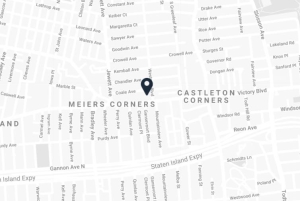What is a Deposition in a Queens Car Accident Case?
WHAT IS A DEPOSITION IN A QUEENS CAR ACCIDENT CASE?
| Jun 19, 2020 | Car Accidents, Motor Vehicle Accidents, Personal Injury |
OUR NEW YORK CITY PERSONAL INJURY LAWYER EXPLAINS WHAT IS A DEPOSITION IN A QUEENS CAR ACCIDENT CASE
There are a lot of parts to any type of motor vehicle accident case when it comes to making a claim. This includes advising your no fault insurance carrier within 30 days, as well as your SUM coverage carrier within 99 days of an accident. Generally, you also have three years from the date of the accident to commence a negligence action. This time period could be less for a wrongful death case, or even most less for a claim against a state actor (two years typically) or municipal actor (90 days, or a year and 90 days permission of the court). Thus, it is always important to contact a New York City personal injury lawyer to ensure your lawsuit is timely filed.
To file your lawsuit, this includes filing a summons and complaint with the county clerk’s office and then serving it on the defendant(s). This sets off a serious of demands and pleadings, including the answer (response to the complaint), demand for health records, combined disclosure demands, demand for authorizations, and also a demand for a deposition or examination before trial.
Our New York City personal injury lawyers at Cohen and Cohen Law Group, P.C., know how important a deposition or examination before trial can be for your Queens car accident case. This is a very important tool in the disclosure process which helps to identify facts and issues, as well as to refine the pleadings and the theory of the case. A good deposition can keep a case on course, but a great deposition can force a settlement in your favor. But it is important to also release that a bad deposition could so hurt a case, including forcing a settlement much below what you deserve. Learn about depositions and what to expect from them here.
WHAT IS A DEPOSITION OR EXAMINATION BEFORE TRIAL?
A deposition or examination before trial, also known as an EBT, is an important disclosuredevice under New York law. In fact, every state has some form a a deposition or EBT. In New York, an EBT is where a party or witness is sworn under oath. This is when one party’s attorney gets to ask the other party or witness questions on the record. This means that there is a stenographer or court reporter present to take down the question and answers. The point is to ask questions about the case and the injuries. The party’s attorney who is answering the questions is present to “defend” the deposition by objecting to questions, ensuring clarity, and otherwise protecting your rights.
While some depositions can be adversarial and aggressive in nature—much like TV or movies—most depositions are not like that. In fact, many depositions can be pleasant and are more about fact-seeking. This is especially true for victims who have been obviously seriously injured in an accident that was not there fault. Even if liability is an issue, many times the attorney asking questions is respectful. Victims going into a deposition should understand that they need to be professional and guarded, but they should not go into a deposition dreading it like the TV shows or movies.
WHAT TO EXPECT FROM A DEPOSITION IN A QUEENS CAR ACCIDENT CASE
It is perfectly acceptable and very common for a person being deposed, especially for the first time, to be very nervous. Most attorneys know this and will not jump right in with difficult or aggressive questions. Rather, most attorneys will start with your basic information, where you live, who you work for, and other general background questions. The point is to build a foundation but also to let the witness get more comfortable. Most attorneys recognize that a comfortable witness is a more accurate witness, but also a witness who is more likely to give information.
After the background information, in a Queens car accident case a New York City personal injury lawyer is likely to start asking questions about the day of the accident. The weather, what you were doing, what was happening, where you were going, including how you driving. The next part will discuss the accident, what you saw, heard, or experienced. They attorney will try to get you to expand on what happened and offer information outside the question. Always make sure to answer the question and just the question, do not offer a lot of extra information.
DEPOSITION QUESTIONS ABOUT YOUR INJURIES AND LIMITATIONS
Finally, the lawyer will try to ask you about your injuries. Do not hold back! Explain what hurt, your limitations, and to the best of your ability you appointments, doctors, and treatment. Now is not the time to be a hero either. If it really hurt like an 9 out of 10, say that. Do not be tough and say it was a 6 out of 10 or you were really able to tolerate the pain. Of course, never lie about your injuries or your pain. But be honest!
Something you will also need to think about and explain are your limitations. Under New York insurance law, a victim of a car accident must suffer a “serious injury.” There are many different types of serious injuries and it depends on your claim and how you lawyer and doctors believe your injuries are going to fit in the statute. But you can guarantee that the other lawyer will ask you about your daily activities within the first 6 months of your accident.
This is because one type of serious injury is injuries that prevent or inhibit a person’s reasonable and customary daily activities for 90 days out of the first 180 days. While being out of work could count, there is case law that says just being out of work for 90 out of 180 days is not enough. Thus, you should be able to look at and evaluate your other daily activities that you cannot do. Think of this before your deposition to be able to explain it during your deposition without struggling—because on the spot and the nervousness of the deposition, you may forgot a lot!
Some common things to think about include the following:
- Fun activities like walking, biking, running, sports, kayaking, and other things you cannot do
- Carrying grocery bags and shopping bags
- Can you play with the dog or your kids or grandkids?
- Are you no longer able to go to the gym?
- Who does laundry
- Who does vacuuming
- Who does cleaning
- Who does the dishes
- Can you drive a car
- Describe showering difficulties
- Something personal that has high credibility because it is, but explain personal hygiene and using the restroom on a toilet (it is uncomfortable, but do not hold back because you need to show your full extent of your injuries and explaining problems using the toilet can be very embarrassing but very relatable to other jurors)
- Brushing your teeth and washing your face issues
- Can you go swimming in a pool or at the beach
- What about using stairs
- What is your morning routine like, getting out of bed
- How about going to sleep and getting comfortable
- Discuss relations with a spouse, do you have pain that was not there? Are you even able to?
- Discuss relationships with coworkers and family do to your injuries
- Activities at work and what you do at work
- Is there something that you loved to do before the accident that you cannot, and
- Anything these that you feel or have less ability to do after the Queens car accident.
ASK OUR NEW YORK CITY PERSONAL INJURY LAWYERS FOR HELP
If you have any questions about your personal injuries after a car accident occurring in Queens, Long Island, Bronx, New York City, or anywhere else, please ask our New York City personal injury lawyers at Cohen and Cohen Law Group, P.C. to learn how we can help protect your rights to compensation under New York law. We offer FREE consultations and only get paid AFTER we recover compensation for you in a settlement or court award. Call to learn how we can help you with a FREE consultation by calling (718) 275-7779, or use our convenient and easy-to-use contact us box available here.




